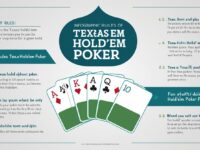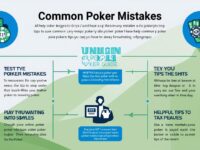Entering the world of poker tournaments can be both thrilling and intimidating for novices. With the right foundation and strategies, however, beginners can find themselves navigating the poker landscape with increasing confidence and skill. This article aims to provide essential tips and strategies that will help newcomers excel in their first tournaments, paving the way for a rewarding poker journey.
Essential Poker Tips for Tournament Beginners
Understanding the rules and structure of a poker tournament is fundamental for any newcomer. Familiarize yourself with the specific format of the tournament you’re entering—whether it’s a freezeout, rebuy, or shootout event. Each type has its own nuances that can drastically affect gameplay. Knowing the blind structure is particularly crucial, as it influences your strategy and decision-making. Keep an eye on how often blinds increase to better manage your chip stack and avoid being caught off-guard.
Bankroll management is another critical aspect for any aspiring tournament player. Set a strict budget for yourself before entering a tournament, and stick to it regardless of the outcome. This discipline will prevent you from making impulsive decisions that could lead to financial strain. Additionally, consider the buy-in amount in relation to your overall bankroll. Experts often suggest not risking more than 1-2% of your total bankroll in a single tournament to maintain sustainability in the long run.
Lastly, patience and focus are invaluable virtues in poker. Beginners often make the mistake of playing too many hands or being overly aggressive without a solid plan. Instead, take the time to observe your opponents and learn their playing habits. This information can be incredibly advantageous as the tournament progresses. Remember that poker is a game of skill and strategy, not just luck, and staying calm and calculated will increase your chances of success.
Strategies to Excel in Your First Poker Event
Adopting the right mindset is crucial when stepping into your first poker tournament. Confidence is key, but it’s equally important to stay humble and open to learning. Each hand provides an opportunity to gather information about your opponents and your own playing style. Be observant, and use this information to adjust your strategy as the game evolves. This adaptive mindset will serve you well as you progress through the tournament.
Position play is a vital strategy that can significantly impact your success in poker tournaments. Being in a late position allows you to gather more information about your opponents’ actions before making your own move. Use this advantage to make more informed decisions, such as deciding when to bluff or fold. Conversely, be cautious in early positions, where you have less information to work with. Understanding the importance of position can help you control the table dynamics better and make strategic decisions with more precision.
Finally, managing your emotions is essential to maintaining a clear head during a tournament. It’s easy to become frustrated after a bad beat or overly confident following a big win. However, letting your emotions dictate your play can lead to costly mistakes. Practice emotional regulation by taking deep breaths or stepping away from the table for a moment if needed. Maintaining a balanced emotional state will help you think more clearly, allowing you to make the best decisions possible throughout the tournament.
Mastering the basics of poker tournaments requires patience, practice, and a willingness to learn. By equipping yourself with essential tips and strategies, you’re setting a solid foundation for success in the competitive world of poker. Remember that every tournament is an opportunity to refine your skills and gain valuable experience. With time and dedication, you can evolve from a novice into a formidable player, ready to take on any challenge the poker tables present.



















0 Comments